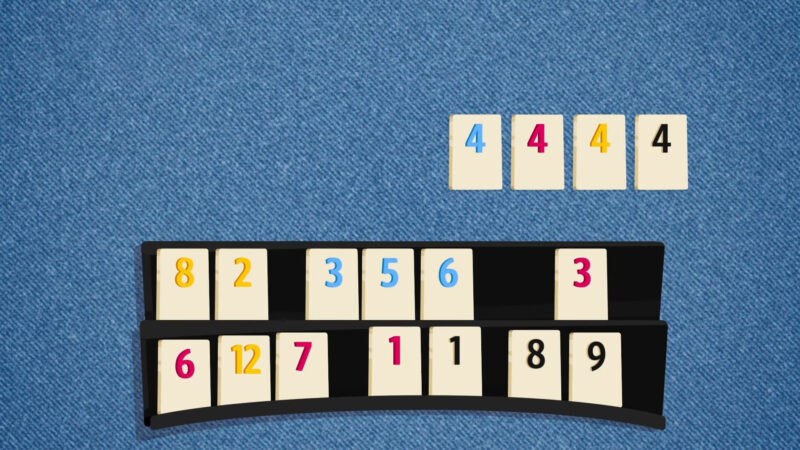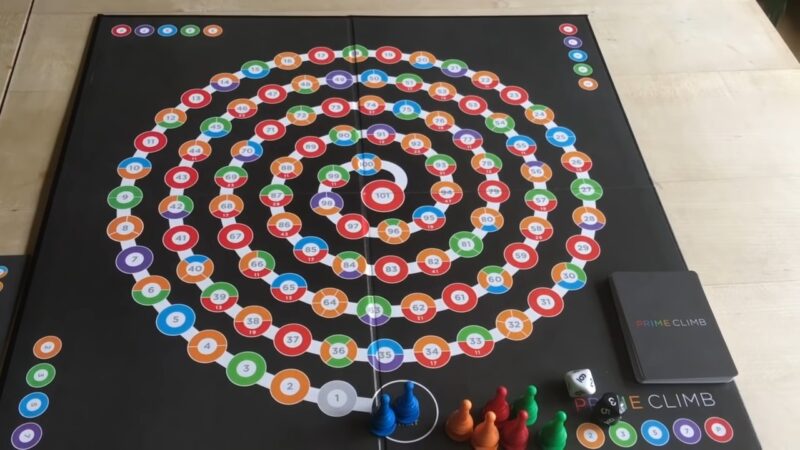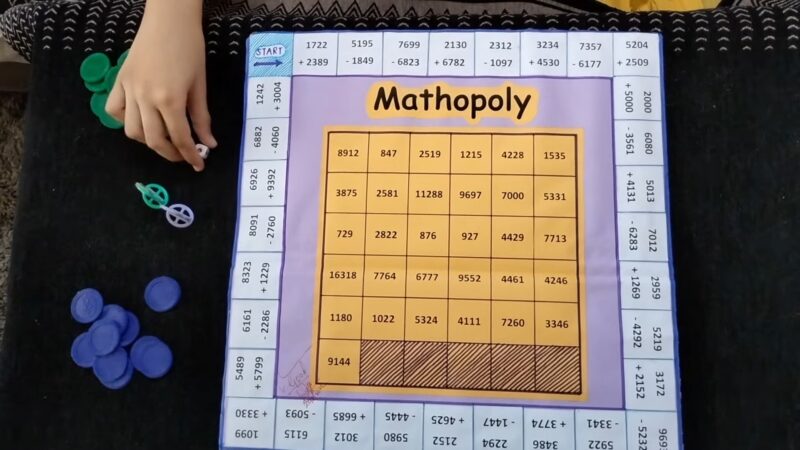Math might sometimes be painted as a mundane subject, but with the right approach, it becomes a thrilling adventure. By tapping into kids’ playful nature, parents and educators can make math both fun and educational.
Board games provide a vibrant platform for engaging children, going beyond just the abacus, to challenge them while guaranteeing fun. In this article, we explore a selection of outstanding board games that transform math into an enjoyable and enlightening experience for kids.
Why Board Games Are Essential for Math Learning
Board games aren’t just about fun. They provide a hands-on way for kids to explore and grasp math concepts. Games employ problem-solving, logic, and strategic thinking, pushing children to apply their math knowledge in engaging ways.
Engagement and Retention
When kids are actively involved, they tend to understand and retain concepts better. Board games capture their attention and make learning feel less like a chore and more like a fun challenge. According to the National Council of Teachers of Mathematics, engaging students in interactive activities can significantly boost their mathematical understanding.
Building Social Skills
Playing games isn’t just about the math. It’s also a social activity. Kids learn to wait their turn, strategize, negotiate, and sometimes even handle defeat gracefully. According to Psychology Today, board games can be instrumental in developing children’s social and emotional skills.
Top Board Games That Teach Math Skills
Rummikub

A game of sequences and patterns, Rummikub keeps players on their toes. Participants strategize to arrange their number tiles into sets or runs. According to Toy Association, games that involve patterns and sequences, like Rummikub, enhance kids’ analytical skills.
- Variety of Play: With multiple variations available, kids can enjoy a fresh challenge every time.
- Group Dynamics: Perfect for multiple players, this game teaches both math and teamwork.
Yahtzee
Yahtzee is a classic that exercises probability, counting, and strategy skills. Each roll of the dice and the combinations players choose can drastically alter the outcome.
- Probability in Action: Understand how often certain rolls might occur.
- Strategic Planning: Decide the best combinations to aim for based on current rolls.
According to Math Geek Mama, games like Yahtzee provide a practical application of probability, helping kids understand and enjoy the concept.
Sequence Numbers
This game is all about matching equations to their answers. Players need to strategize to achieve five chips in a row. According to Edutopia, using games to reinforce basic operations like addition and subtraction can make these topics much more engaging for students.
- Critical Thinking: As players decide where to place their chips.
- Operational Mastery: Constantly practice addition and subtraction.
Pizza Fraction Fun
This game provides a delicious way to explore fractions. Players work on identifying and adding fractions, all while constructing pizzas.
- Visual Learning: Representing fractions as slices of pizza can help kids grasp the concept better.
- Multiple Games in One: With seven different games available, kids can enjoy varied challenges.
According to Teaching Channel, visual aids, like those in Pizza Fraction Fun, help students better understand mathematical concepts.
Prime Climb

Prime Climb is a colorful journey through addition, subtraction, multiplication, and division. Players strategize to reach the board’s center, engaging in critical thinking throughout.
- Operations Galore: Continuously practice various mathematical operations.
- Competitive Learning: As players try to bump their opponents back to the start.
According to Mathematical Association of America, games that encompass multiple operations, like Prime Climb, offer comprehensive math practice, ensuring a holistic understanding of the subject.
FAQs
Are board games suitable for all age groups?
Yes, there are board games tailored for different age groups. While some games are designed for younger kids, others cater to teens and even adults. Ensure you check the recommended age before purchasing.
How often should children play these math board games?
There’s no strict frequency, but incorporating them into weekly family game nights or classroom activities can be beneficial. Regular play enhances understanding and retention of math concepts.
Can these games be played solo?
While many board games are designed for multiple players, some have solo variations or can be adapted for individual play. It’s always best to check the game’s guidelines.
Are there digital versions of these board games?
Yes, many classic board games now have digital versions or apps that can be played on tablets or computers. This can be an alternative for on-the-go learning.
Do these games align with school curriculums?
While not directly designed to match school curriculums, many math board games reinforce concepts taught in schools. They can serve as supplementary tools to enhance classroom learning.
How do board games compare to digital math games?
Both have their merits. Board games offer tactile and social experiences, while digital games provide interactive visuals and adaptability. It’s beneficial to have a mix of both in a child’s learning journey.
Are there board games that cover advanced math topics?
Absolutely! While many games cover basic arithmetic, there are also board games that delve into algebra, geometry, and even calculus for older students.
Final Words
Integrating learning with play is a sure-fire way to make education both fun and effective. Board games serve as incredible tools, teaching kids math while ensuring they’re engaged and entertained.
So next time you’re pondering over how to make math interesting, remember the board games mentioned here. They not only boost mathematical abilities but also foster critical thinking and social skills.
Happy gaming!
